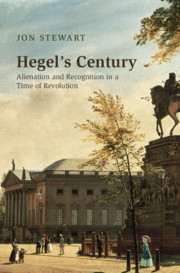Book contents
- Hegel’s Century
- Hegel’s Century
- Copyright page
- Dedication
- Contents
- Acknowledgments
- Preface
- Introduction
- Part I The Beginning
- Part II The First Generation
- 3 Heine, Alienation, and Political Revolution
- 4 Feuerbach’s Doctrine of the Humanity of the Divine in The Essence of Christianity
- 5 Bruno Bauer’s Criticism of Christianity
- Part III The Second Generation
- Bibliography
- Index of Names
- Subject Index
4 - Feuerbach’s Doctrine of the Humanity of the Divine in The Essence of Christianity
from Part II - The First Generation
Published online by Cambridge University Press: 14 October 2021
- Hegel’s Century
- Hegel’s Century
- Copyright page
- Dedication
- Contents
- Acknowledgments
- Preface
- Introduction
- Part I The Beginning
- Part II The First Generation
- 3 Heine, Alienation, and Political Revolution
- 4 Feuerbach’s Doctrine of the Humanity of the Divine in The Essence of Christianity
- 5 Bruno Bauer’s Criticism of Christianity
- Part III The Second Generation
- Bibliography
- Index of Names
- Subject Index
Summary
This chapter is dedicated to Hegel’s student Ludwig Feuerbach. It begins by giving an overview of Feuerbach’s life and writings. The main focus of the chapter is Feuerbach’s most famous work, The Essence of Christianity. Feuerbach tries to argue that it is a mistake to think of God as an objective, transcendent entity that is fundamentally different from human beings, as is traditionally done in theology. Instead, God is simply the essence of what is human projected onto an external entity. For this reason he refers to his undertaking not as theology or philosophy of religion but as anthropology; that is, a study of the human. It is shown that Feuerbach takes up the key Hegelian concepts of recognition and alienation. We take God to be something different and other, but in fact he is a reflection of our self-consciousness. Humans are alienated from their own positive qualities, which they have denied to themselves in order to project them onto God. Humans are thus not separated from something else or other but rather from themselves or their own nature. Feuerbach’s plea is that we restore our energy and efforts to ourselves by, for the first time, dedicating them to ourselves.
Keywords
- Type
- Chapter
- Information
- Hegel's CenturyAlienation and Recognition in a Time of Revolution, pp. 89 - 117Publisher: Cambridge University PressPrint publication year: 2021

